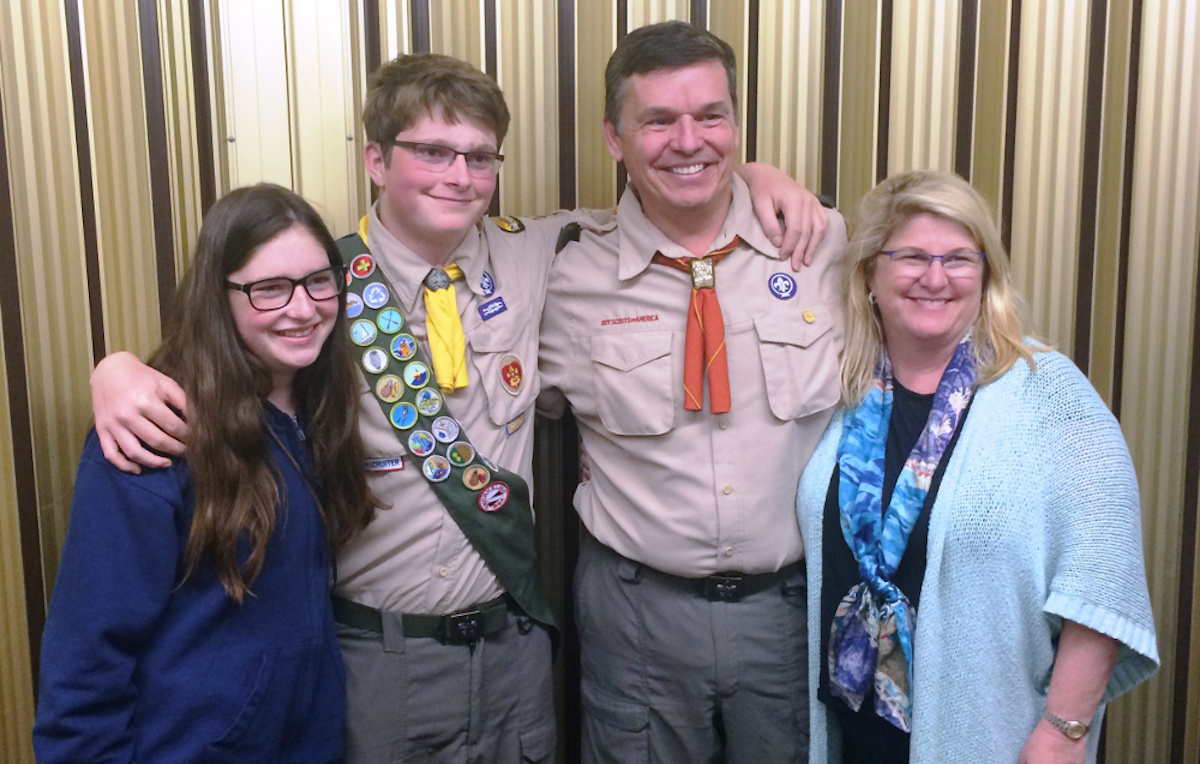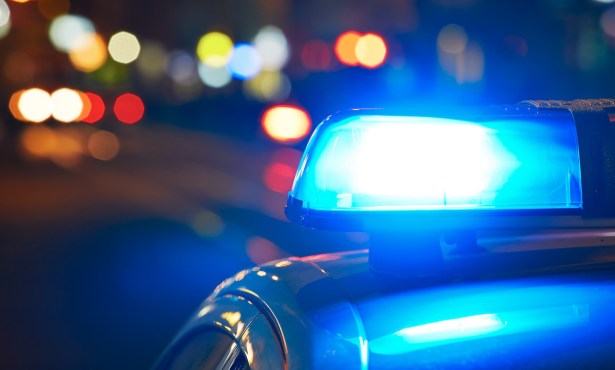Mother of Debris Flow Victim Sues Santa Barbara Sheriff over Son’s Remains
Department Disputes Findings of UCSB Anthropologist, Allegedly Threatens Kim Cantin with Punitive Action

Kim Cantin, the mother of 17-year-old 1/9 Debris Flow victim Jack Cantin, is suing the Santa Barbara Sheriff’s Office over possession of what she believes are her son’s remains.
Last summer, Cantin announced to the community that a UCSB forensic anthropologist had unearthed bones belonging to Jack, who was swept away in the 2018 disaster alongside his father, Dave. While Dave’s body was found on Hammond’s Beach near the mouth of Montecito Creek, Jack’s was never recovered.
The Sheriff’s Office has disputed the findings of the anthropologist ― who abruptly resigned from her tenured position at the university earlier this month ― and still considers Jack a missing person. Cantin has therefore been unable to officially bury her son, the lawsuit states, and the department is now reportedly threatening her with punitive action if she does not turn over the bones she has collected for further testing.
“All Kim wants is to bury the few remains she has of her son next to his father,” reads the complaint, which was filed in federal court and alleges civil rights violations. “Her pleas to be able to do this are being treated with outrageous disrespect.”
Attorney Barry Cappello said he and Cantin had entered into “resolution discussions” with county officials and were therefore unable to comment on the case. Through a spokesperson, Sheriff Bill Brown said he could not discuss pending litigation. Multiple attempts to reach Amber Holderness with the County Counsel’s Office were unsuccessful. The UCSB anthropologist, Dr. Danielle Kurin, said her recent resignation was not related to the Cantin matter and instead was to pursue “a more fulfilling and meaningful job opportunity.”
The lawsuit was first discovered in the federal docket by science writer Michael Balter, who has documented previous controversies involving Kurin, including a Title IX investigation against her that led to a three-year administrative leave from the university and an official letter of censure.
Cantin’s complaint begins with her own efforts to locate Jack in May 2018, four months after the debris flow, when the official search for him had ended. Cantin organized volunteers, secured permission from property owners to inspect their grounds, obtained permits to dig up old wells, and rented soil-penetrating radar equipment from Canada. She kept a shovel and pair of boots in her car and after each rain would scour nearby creek beds. She and the volunteers ultimately found a number of Cantin family artifacts, including Dave’s poker chips and Jack’s teddy bear, but never Jack.
In early 2020, the lawsuit says, Cantin reached out to UCSB for help. Kurin responded, quickly obtaining grant money and setting up a class to search for Jack and another lost victim of the disaster, 2-year-old Lydia Sutthithepa, who still remains unaccounted for. Kurin and her team targeted a 110-acre area, and on May 10, 2021, they discovered suspected human bone alongside pieces of carpet from the Cantin family home and remnants of Jack’s underwear. The group collected two specimens ― a cortical fragment and a toe bone ― and notified the Sheriff’s Office.
The next day, the complaint continues, Cantin drove the bones to the Coroner’s Bureau, which is operated by the Sheriff. She was informed the samples would be sent to Dr. Frederick Snow, a former police officer and forensic anthropologist based in Tennessee, for testing. A week later, a Sheriff’s official broke the news to Cantin that the analysis revealed the cortical shard was more than three years old and the toe piece was plant matter, not bone. Cantin offered to pay for more in-depth testing but was reportedly told that the Sheriff would be taking the matter no further. Adding insult to injury, the complaint says, Cantin was dismayed to find the samples in pieces when they were returned to her.
Sign up for Indy Today to receive fresh news from Independent.com, in your inbox, every morning.
The lawsuit attacks Snow’s credibility and takes issue with his four-page findings report, describing it as “grossly inadequate and simply wrong.” Kurin, the complaint insists, proved the toe fragment was in fact bone by documenting high concentrations of phosphorus and calcium in the sample. She also demonstrated the cortical specimen was buried between two and three years ago based upon its sharp edges and a lack of fluorine in its composition, the lawsuit says.
Snow, by contrast, failed to explain his own testing methodology or provide any reference sources, the lawsuit goes on. It calls him an “unqualified expert,” claiming he possesses no recent certifications or training, lacks publications as a lead author, and is not board certified. The complaint alleges that, despite these professional shortcomings, the Sheriff’s Office is stubbornly standing by Snow to protect itself from liability after relying on him in other cases in which he may have provided “inaccurate or patently wrong opinions.” Snow did not respond to requests for comment for this story.
Despite Snow’s dissenting opinion, Kurin and her team continued their search, ultimately finding more skeletal remains that supposedly showed evidence of thermal trauma, injuries Kurin said were consistent with electrical fires and transformer explosions triggered by the debris flow. The second set of samples was also recovered near items connected to the Cantin house, including tile from Jack’s bathroom.
In her own report, Kurin said she was 90 percent certain the bones belonged to Jack and claimed her analysis had been favorably “peer-reviewed” by “Dr. Valda Black” of Washington State University. Those with knowledge of the case, however, point out that Black is in fact a graduate student at Washington State who is still pursuing her PhD; Kurin also reportedly sits on her review committee. Black did not respond to a request for comment.
As Santa Barbara media were reporting on Cantin’s announcement that her son had been found, she attempted to schedule a funeral. But Cantin was told by the funeral home that it could not obtain a burial permit unless the cause of death on Jack’s death certificate was changed from “missing” to some medical cause. Cantin requested that the Sheriff’s Office make the amendment, but it demurred, the lawsuit says. Instead, Sheriff Brown asked Cantin to relinquish one of the newly found bones ― a shin bone ― for further testing at a Kern County lab.
Cantin agreed, but only on the condition the shin bone be returned to her, the lawsuit states. On August 4, 2021, the lab issued a verdict that the bone was animal, not human, and the Sheriff’s Office suggested it be sent to Marshall University’s forensics department for yet more analysis. Cantin declined, worried the process would destroy the bone, and asked for it back. Brown has so far refused, the lawsuit claims.
A week later, on August 11, a funeral was held for Jack. “The Sheriff and other officers were in attendance, prominently standing front and center, and misleadingly appearing to the public as supporting [Kim],” the complaint reads. “Because the Sheriff would not change the death certificate, Kim could not bury her son’s remains. She was forced to use an urn to hold his bones, and the Sheriff was present as she left with that urn.” Cantin now allegedly faces a demand from the department that she relinquish all of the bones in her possession to the Coroner. Sources close to the case say concerns exist that some or all of the remains may in fact be of Chumash origin.
The lawsuit concludes by noting a recent report by Santa Barbara’s Grand Jury that recommends separating the county’s Sheriff and Coroner positions. Brown currently occupies both. “Such a separation might preclude the type of conflicts involved here, where Defendants’ demands were likely made in order to protect the finality of prior criminal or civil investigations,” it states. The Grand Jury report also suggested that county officials require the Coroner Bureau to satisfy medical standards for accreditation set by the U.S. Department of Justice, which it does not currently meet.
Support the Santa Barbara Independent through a long-term or a single contribution.



